One Mans Depression Is Another Mans Funny Dark and Depressing
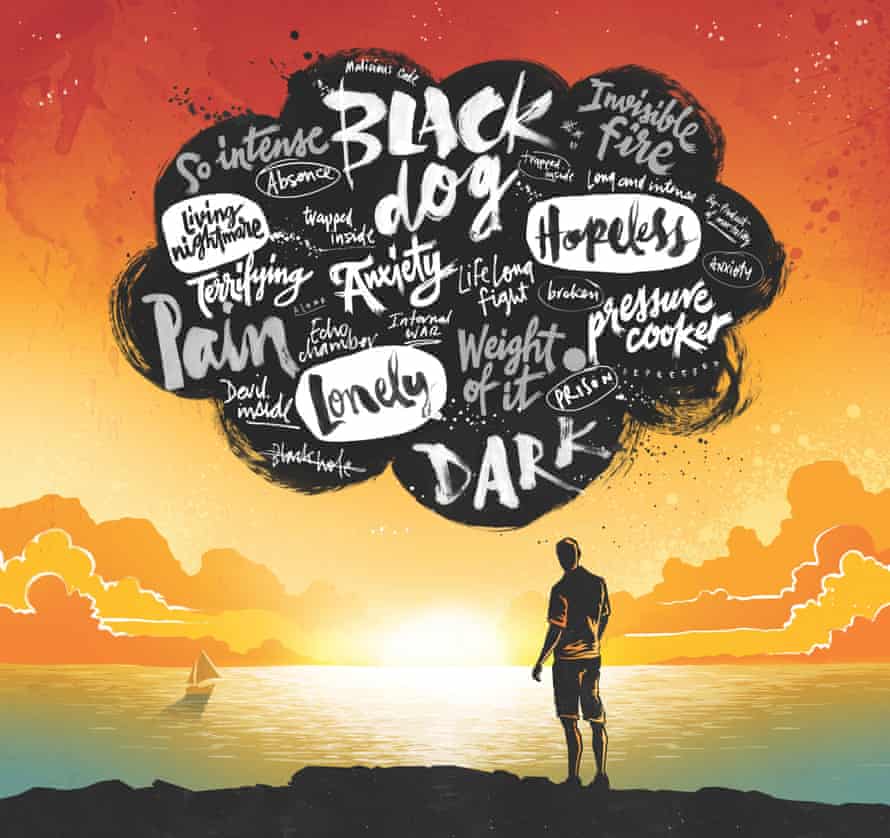
I can remember the day the old me died. It started with a thought. Something was going wrong. That was the start. Before I realised what it was. And then, a second or so later, there was a strange sensation inside my head. Some biological activity in the rear of my skull, not far above my neck. The cerebellum. A pulsing or intense flickering, as though a butterfly was trapped inside, and a tingling sensation. I did not yet know of the strange physical effects depression and anxiety would create. I just thought I was about to die. And then my heart started to go. Then I started to go. I sank, fast, falling into a new claustrophobic and suffocating reality. And it would be way over a year before I would feel anything like even half-normal again.
Until that point I'd had no real understanding or awareness of depression, except that I knew my mum had suffered from it for a little while after I was born, and that my great-grandmother on my father's side had ended up killing himself. So I suppose there had been a family history, but it hadn't been a history I'd thought about much.
Anyway, I was 24. I was living in Spain – in one of the more sedate and beautiful corners of the island of Ibiza. It was September. Within a fortnight, I would have to return to London, and reality. After six years of student life and summer jobs. I had put off being an adult for as long as I could, and it had loomed like a cloud. A cloud that was now breaking and raining down on me.
The weirdest thing about a mind is that you can have the most intense things going on in there but no one else can see them. The world shrugs. Your pupils might dilate. You may sound incoherent. Your skin might shine with sweat. And there was no way anyone seeing me in that villa could have known what I was feeling, no way they could have appreciated the strange hell I was living through, or why death seemed such a phenomenally good idea. I stayed in bed for three days. But I didn't sleep. My girlfriend, Andrea, came in with water at regular intervals, or fruit, which I could hardly eat.
The window was open to let fresh air in, but the room was still and hot. I can remember being stunned that I was still alive. I know that sounds melodramatic, but depression and panic only give you melodramatic thoughts to play with. Anyway, there was no relief. I wanted to be dead. No. That's not quite right. I didn't want to be dead, I just didn't want to be alive. Death was something that scared me. And death only happens to people who have been living. There were infinitely more people who had never been alive. I wanted to be one of those people. That old classic wish. To never have been born. To have been one of the three hundred million sperm that hadn't made it.
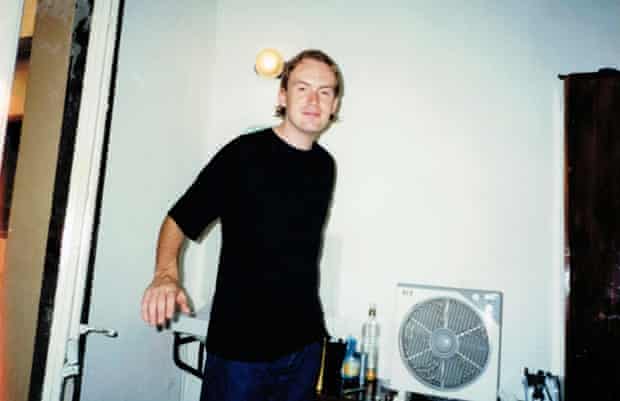
I didn't have terms like "depression" or "panic disorder" in my head. In my laughable naivety I did not really think that what I was experiencing was something that other people had ever felt. Because it was so alien to me I thought it had to be alien to the species.
On the third day, I left the room and I left the villa, and I went outside to kill myself.
The sun was beating hard. The air smelt of pine and the sea. The sea was right there, just below the cliff. And the cliff edge was only a few steps away. No more than 20, I would say. The only plan I had was to take 21 steps in that direction.
"I want to die."
The villa was behind me. The nicest place I had ever lived. In front of me, the most glorious view I had ever seen. A sparkling Mediterranean, like a turquoise tablecloth scattered with tiny diamonds, fringed by a dramatic coastline of limestone cliffs and small, near-white forbidden beaches. It fitted almost every definition of beautiful. And yet, the most beautiful view in the world could not stop me from wanting to kill myself.
A little over a year before I had read a lot of Michel Foucault for my MA. Much of Madness and Civilisation. The idea that madness should be allowed to be madness. That a fearful, repressive society brands anyone different as ill. But this was illness. This wasn't having a crazy thought. This wasn't being a bit wacky. This wasn't reading Borges or listening to Captain Beefheart or smoking a pipe or hallucinating a giant Mars bar. This was pain. I had been OK and now, suddenly, I wasn't. I wasn't well. So I was ill. It didn't matter if it was society or science's fault. I simply could not feel like this a second longer. I had to end myself.
I was going to do it as well. While my girlfriend was in the villa, oblivious, thinking that I had just needed some air. I walked, counting my steps, then losing count, my mind all over the place. "Don't chicken out," I told myself. I made it to the edge of the cliff. I could stop feeling this way simply by taking another step. It was so preposterously easy – a single step – versus the pain of being alive.
But it wasn't easy. The weird thing about depression is that, even though you might have more suicidal thoughts, the fear of death remains the same. The only difference is that the pain of life has rapidly increased. So when you hear about someone killing themselves it's important to know that death wasn't any less scary for them. It wasn't a "choice" in the moral sense. To be moralistic about it is to misunderstand. I stood there for a while. Summoning the courage to die, and then summoning the courage to live. To be. Not to be. Right there, death was so close. An ounce more terror, and the scales would have tipped. There may be a universe in which I took that step, but it isn't this one.
I had a mother and a father and a sister and a girlfriend. That was four people right there who loved me. I wished like mad, in that moment, that I had no one at all. Not a single soul. Love was trapping me here. And they didn't know what it was like, what my head was like. Maybe if they were in my head for 10 minutes they'd be like, "Oh, OK, yes, actually. You should jump. There is no way you should feel this amount of pain. Run and jump and close your eyes and just do it. I mean, if you were on fire I could put a blanket around you, but the flames are invisible. There is nothing we can do. So jump. Or give me a gun and I'll shoot you. Euthanasia." But that was not how it worked. If you are depressed your pain is invisible. Also, if I'm honest, I was scared. What if I didn't die? What if I was just paralysed, and I was trapped, motionless, in that state, for ever? I think life always provides reasons to not die, if we listen hard enough. Those reasons can stem from the past – the people who raised us, maybe, or friends or lovers – or from the future – the possibilities we would be switching off.
And so I kept living. I turned back to the villa and ended up throwing up from the stress of it all.
Suicide is now – in places including the UK and US – a leading cause of death, accounting for more than one in 100 fatalities. According to figures from the World Health Organisation, it kills more people than stomach cancer, cirrhosis of the liver, colon cancer, breast cancer, and Alzheimer's. As people who kill themselves are, more often than not, depressives, depression is one of the deadliest diseases on the planet. It kills more people than most other forms of violence – warfare, terrorism, domestic abuse, assault, gun crime – put together. Yet people still don't think depression really is that bad. If they did, they wouldn't say the things they say.
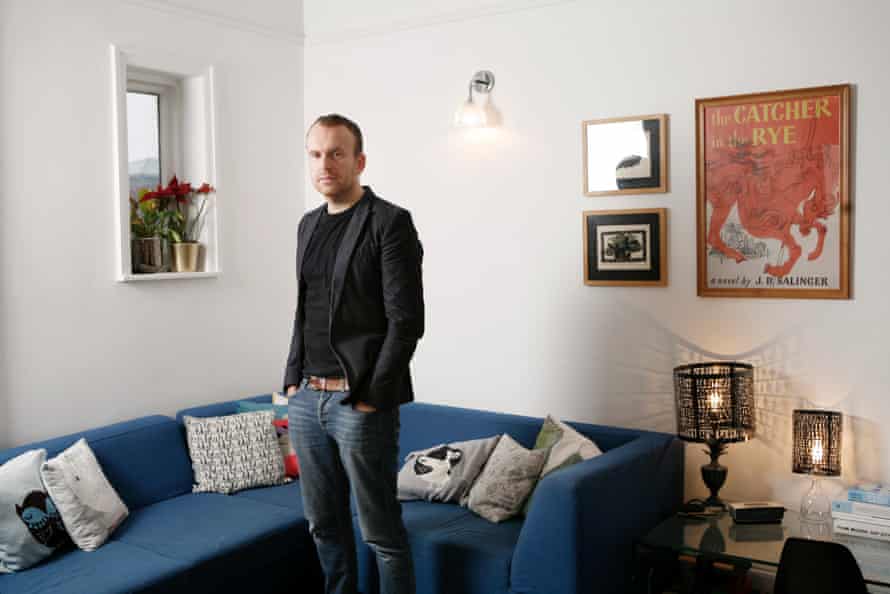
Things people say to depressives that they don't say in other life-threatening situations:
"Come on, I know you've got tuberculosis, but it could be worse. At least no one's died."
"Why do you think you got cancer of the stomach?"
'Yes, I know, colon cancer is hard, but you want to try living with someone who has got it. Sheesh. Nightmare."
"Oh, Alzheimer's you say? Oh, tell me about it, I get that all the time."
"Ah, meningitis. Come on, mind over matter."
"Yes, yes, your leg is on fire, but talking about it all the time isn't going to help things, is it?"
"OK. Yes. Yes. Maybe your parachute has failed. But chin up."
When you are trapped inside something that feels so unreal, you look for anything that can give you a sense of your bearings. I craved knowledge. I craved facts. I searched for them like lifebuoys in the sea. But statistics are tricky things. Things that occur in the mind can often be hidden. When I first became ill I spent a lot of energy on looking normal. People often only know someone is suffering if they tell them, and with depression that doesn't always happen, especially if you are male. Also, over time, facts have changed. Depression didn't used to be depression. It used to be melancholia, and far fewer people suffered from that than they do from current depression. But did they really? Or are people more open about such things?
But anyway, here are some of the facts we have right now:
Suicide facts
■ Suicide is the leading cause of death among men under the age of 35.
■ Suicide rates vary widely depending on where you are in the world. For instance, if you live in Greenland you are 27 times more likely to kill yourself than if you live in Greece.
■ A million people a year kill themselves. Between 10 and 20 million people a year try to. Worldwide, men are more than three times as likely to kill themselves than women.
Depression facts
■ One in five people gets depression at some point in their lives. (Though obviously more than that will suffer from mental illness.)
■ Antidepressants are on the rise almost everywhere. Iceland has the highest consumption, followed by Australia, Canada, Denmark, Sweden, Portugal and the UK.
■ Twice as many women as men will suffer a serious bout of depression in their lives. Combined anxiety and depression is most common in the UK, followed by anxiety, post-traumatic stress disorder, "pure" depression, phobias, eating disorders, OCD, and panic disorder.
■ Women are more likely to seek and receive treatment for mental health problems than men. The risk of developing depression is about 40% if a biological parent has been diagnosed with it.
(Sources: World Health Organisation, the Guardian, Mind, Black Dog Institute).
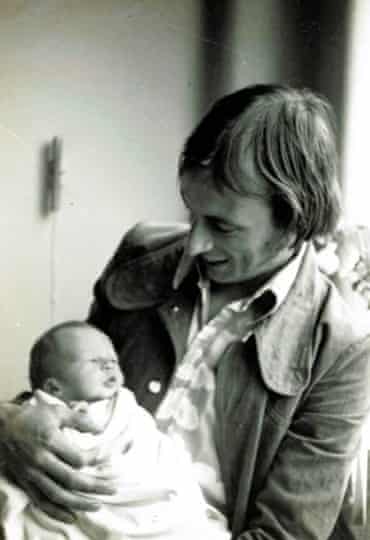
I want to talk about being a man. A staggeringly higher number of men than women kill themselves. In the UK the ratio is 3.5:1, in Greece 6:1, in the USA 4:1. This is pretty average. According to the World Health Organisation, the only countries where more women than men kill themselves are China and Hong Kong. Everywhere else, many more men than women end their own lives. This is especially strange when, according to every study, about twice as many women experience depression.
So, clearly, in most places there is something about being a man that makes you more likely to kill yourself. And there is also a paradox. If suicide is a symptom of depression (it is), then why do more women suffer depression than men? Why, in other words, is depression more fatal if you are a man rather than a woman? The fact that suicide rates vary between eras and countries and genders shows that suicide is not set in stone for anyone. Consider the UK. In 1981, 2,466 women in the UK took their own lives. Thirty years later that number had almost halved to 1,391. The corresponding figures for men are 4,129 and then 4,590. So back in 1981, when the Office of National Statistics records began, men were still more likely to kill themselves than women, but only 1.9 times more likely. Now they are 3.5 times more likely.
Why do so many men still kill themselves? What is going wrong? The common answer is that men, traditionally, see mental illness as a sign of weakness and are reluctant to seek help. Boys don't cry. But they do. We do. I do. I weep all the time. (I wept this afternoon, watching Boyhood.) And boys – and men – do commit suicide.
In White Noise, Don DeLillo's anxiety-ridden narrator Jack Gladney is tormented by the concept of masculinity and how he measures up: "What could be more useless than a man who couldn't fix a dripping faucet – fundamentally useless, dead to history, to the messages in his genes?" And what if, instead of a broken faucet it is a broken mind? Then maybe a man who was worried about his manliness would feel he should be able to fix that on his own too, with nothing but silence amid the "white noise" of modern life, and maybe a few litres of alcohol.
A lot of people still believe that depression is about chemical imbalance. "Incipient insanity was mainly a matter of chemicals," wrote Kurt Vonnegut, in Breakfast of Champions. "Dwayne Hoover's body was manufacturing certain chemicals which unbalanced his mind." It is an attractive idea. And one that has, over the years, been supported by numerous scientific studies. A lot of research into the scientific causes of depression has focused on chemicals such as dopamine and, more often, serotonin. Serotonin is a neurotransmitter, a type of chemical that sends signals from one area of the brain to the other. The theory goes that an imbalance in serotonin levels – caused by low brain cell production of serotonin – equates to depression. So it is no surprise that some of the most common antidepressants, from Prozac down, are SSRIs – selective serotonin reuptake inhibitors – which raise serotonin levels in your brain.
However, the serotonin theory of depression looks a bit wobbly. The problem has been highlighted by the emergence of antidepressants that have no effect on serotonin, and some that do the exact opposite of an SSRI (namely, selective serotonin reuptake enhancers, such as tianeptine) which have been shown to be as effective at treating depression. Add to this the fact that serotonin in an active living human brain is a hard thing to measure and you have a very inconclusive picture indeed.
Back in 2008, Ben Goldacre in the Guardian was already questioning the serotonin model. "Quacks from the $600bn pharma industry sell the idea that depression is caused by low serotonin levels in the brain, and so you need drugs which raise the serotonin levels in your brain… That's the serotonin hypothesis. It was always shaky, and the evidence is now hugely contradictory." So, annoyingly, scientists aren't all singing from the same hymn sheet. Some don't even believe there is a hymn sheet. Others have burnt the hymn sheet and written their own songs. For instance, a professor of behavioural science at Stanford University, Robert Malenka, believes that research needs to be carried out in other areas. Like on the bit of the brain right in the centre, the tiny nucleus accumbens. As this is known to be responsible for pleasure and addiction, it makes a kind of sense that if it isn't working properly we'll feel the opposite of pleasure – anhedonia. That is the inability to feel pleasure, a chief symptom of depression.
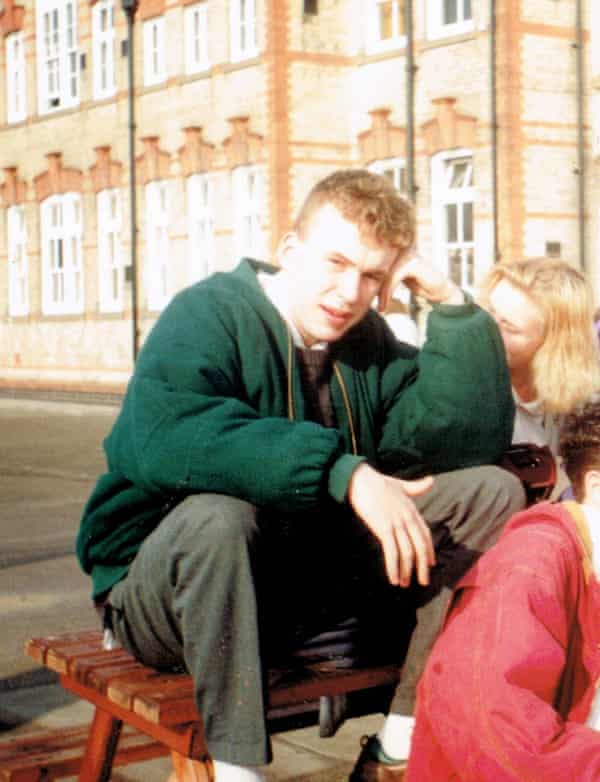
Maybe looking at a specific part or chemical in the brain is only ever going to give a partial answer. Maybe we should be looking at how we live, and how our minds weren't made for the lives we lead. Human brains – in terms of cognition and emotion and consciousness – are essentially the same as they were at the time of Shakespeare or Jesus or Cleopatra or the stone age. They are not evolving with the pace of change. Neolithic humans never had to face emails or breaking news or pop-up ads or Iggy Azalea videos or a self-service checkout at a strip-lit Tesco Metro on a busy Saturday night. Maybe instead of worrying about upgrading technology and slowly allowing ourselves to be cyborgs we should have a little peek at how we could upgrade our ability to cope with all this change.
One thing can be said for sure: we are nowhere near the end of science – especially a baby science like neuroscience. So most of what we know now will be disproved or reassessed. That is how science works, not through blind faith, but continual doubt.
All we can do, for the moment, is really all we need to do – listen to ourselves. When we are trying to get better, the only truth that matters is what works for us. If something works we don't necessarily care why. Diazepam didn't work for me. Sleeping pills and St John's Wort and homeopathy didn't fix me either. I have never tried Prozac, because even the idea intensified my panic, so I don't know about that. But then I have never tried cognitive behavioural therapy either. If pills work for you it doesn't really matter if this is to do with serotonin or another process or anything else – keep taking them. Hell, if licking wallpaper does it for you, do that.
For me, the moment of recovery came in April 2000. It was totally inconsequential. In fact, there is not much to write about. That was the whole point. It was a moment of nothingness, of absent-mindedness, of spending almost 10 seconds awake but not actively thinking of my depression or anxiety. I was thinking about work. About trying to get an article published in a newspaper. It wasn't a happy thought, but a neutral one. But it was a break in the clouds, a sign that the sun was still there, somewhere. It was over not much after it began, but when those clouds came back there was hope. There would be a time when those painless seconds would become minutes and hours and maybe even days.
I am not anti pill. I am pro anything that works and I know pills do work for a lot of people. There may well come a time where I take pills again. For now, I do what I know keeps me just about level. Exercise definitely helps me, as does yoga and absorbing myself in something or someone I love, so I keep doing these things. I suppose, in the absence of universal certainties, we are our own best laboratory. If you are a man or a woman with mental health problems, you are part of a very large and growing group. Many of the greatest and, well, toughest people of all time have suffered from depression. Politicians, astronauts, poets, painters, philosophers, scientists, mathematicians (a hell of a lot of mathematicians), actors, boxers, peace activists, war leaders, and a billion other people fighting their own battles. You are no less or more of a man or a woman or a human for having depression than you would be for having cancer or cardiovascular disease or a car accident.
So what should we do? Talk. Listen. Encourage talking. Encourage listening. Keep adding to the conversation. Stay on the lookout for those wanting to join in the conversation. Keep reiterating, again and again, that depression is not something you "admit to", it is not something you have to blush about, it is a human experience. It is not you. It is simply something that happens to you. And something that can often be eased by talking. Words. Comfort. Support. It took me more than a decade to be able to talk openly, properly, to everyone, about my experience. I soon discovered the act of talking is in itself a therapy. Where talk exists, so does hope.
© Matt Haig. Extracted from Reasons to Stay Alive, published on 5 March by Canongate, £9.99. Click here to order a copy for £7.99
Source: https://www.theguardian.com/society/2015/feb/22/men-do-cry-depression-matt-haig-reasons-to-stay-alive
0 Response to "One Mans Depression Is Another Mans Funny Dark and Depressing"
Post a Comment